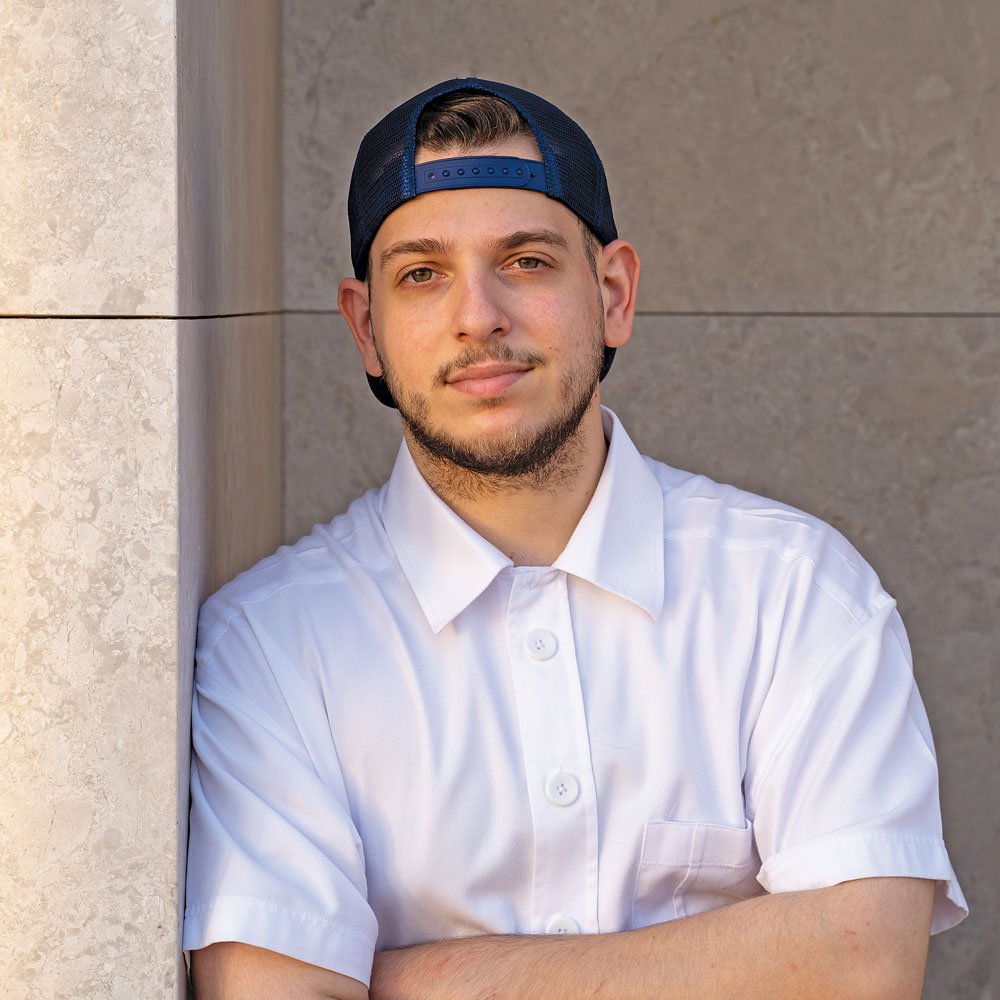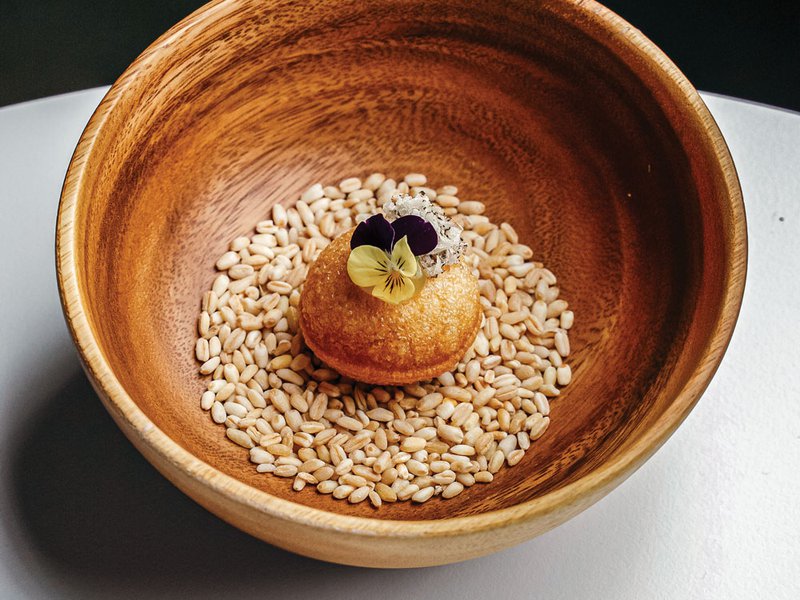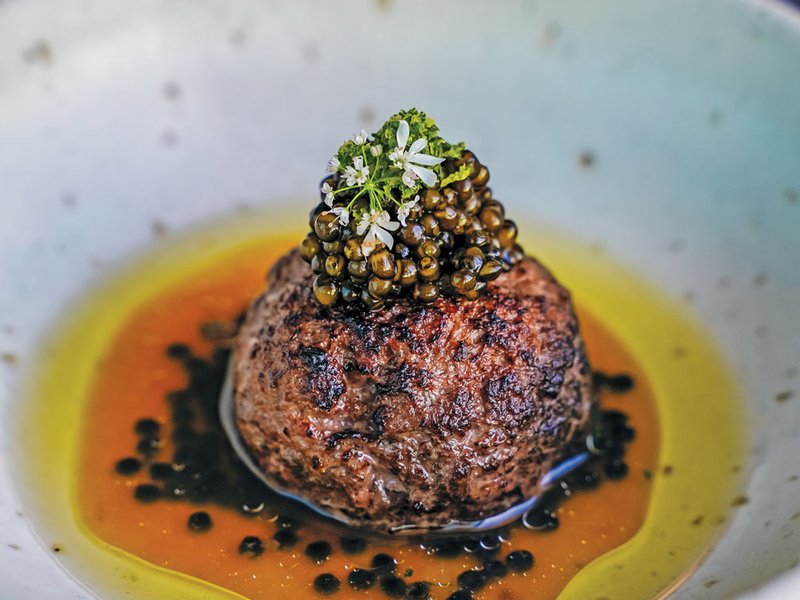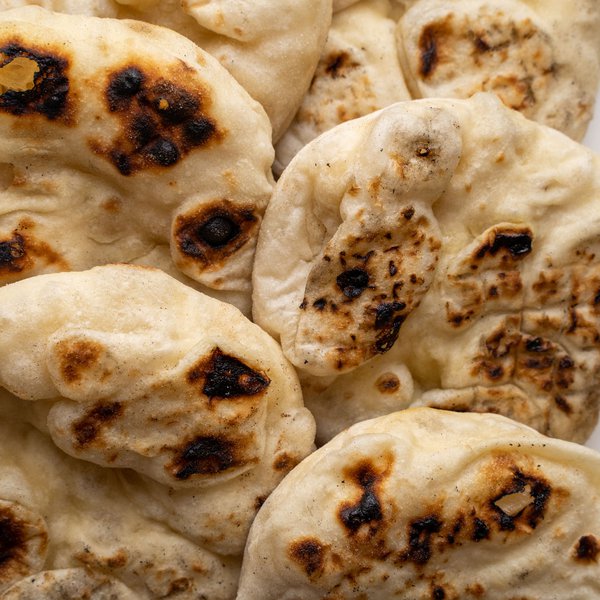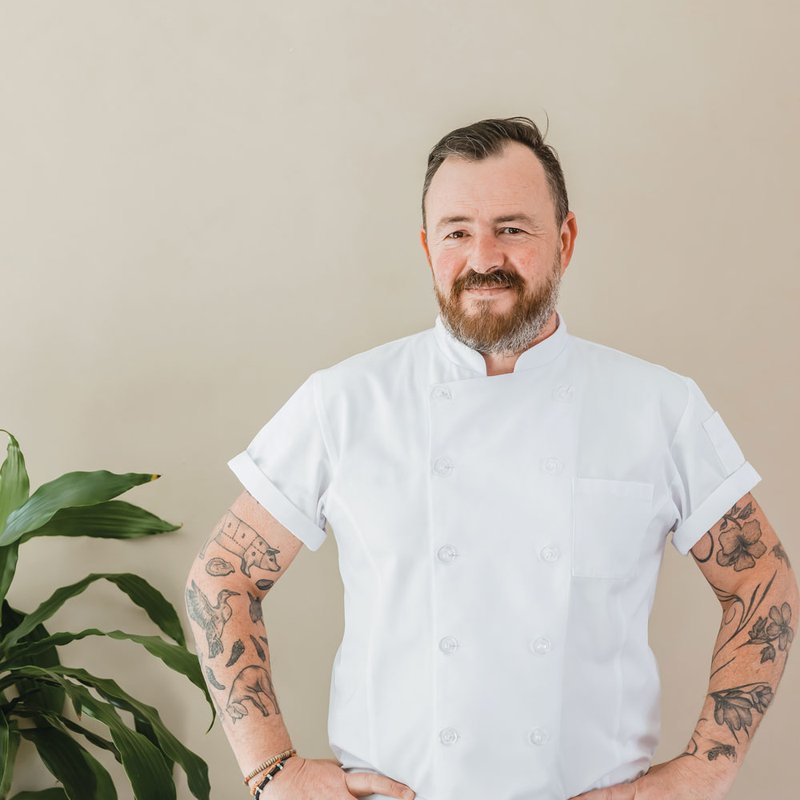Homegrown omakase restaurant, Moonrise, stands out for a few reasons. It seats only 8 people per service, a total of 16 per night. It’s located on the rooftop of a residential building in Satwa. It’s headed by a 26-year-old chef who has never run restaurants before this. Its monthly food waste is less than one per cent. And the food is delicious.
If you’ve grown up in Dubai and eat at Moonrise, the food seems nostalgic. It’s deliberate, implies French-Syrian chef Solemann Haddad. “The inspiration for me and the cuisine is always Dubai. We say ‘Middle Eastern-Japanese’ because people want a fixed answer [about the cuisine]. But the reality is that we’re Dubai cuisine; I’m cooking what I grew up eating as a kid.”
You’ll find humble ingredients like dates, sumac and shatta in his menu, but also the equally extravagant A5 Wagyu, black truffle and caviar sitting alongside them. Solemann adds, “The food we make always has to have a story that can be tied back to the city’s melting pot of cultures.”
Solemann’s love story with food started when he was four years old, taking his elder brother’s children’s cookbook and trying to make chocolate chip cookies and scrambled eggs on the sly. But being a chef was never a career option until he realised regular university subjects just weren’t holding his interest. After finishing culinary school at the age of 23 and completing a few stints as a consultant across restaurants in Dubai, Solemann landed his dream job after regular customers of his pop-up in Alserkal Avenue asked him to check out a potential restaurant space: the rooftop at Eden House in Satwa. He says, “I saw this space and was speechless. I knew we had to open a restaurant here.” Half a year later, in September 2021, Solemann and his team opened their doors and have never looked back.
Now on the fourth iteration of the menu, some dishes have stayed constant – such as the starting dish – foie gras puri which comes flavour-packed with foie gras, date, saffron and pineapple chutney, and Sichuan chilli oil. The chef says, “The pani puri dish stays because it’s a signature. I like to think of it as a DNA dish because a bite gives you all the cultures and a catalogue of all the ingredients, you’re about to have that night.”
Other signatures include the A5 Tsukune and caviar (A5 beef served with black truffle ponzu, Kaluga caviar and preserved lime) and the fluffy Arabic bread (see Table Talk, below) served alongside the miso muhammara and yuzu Stracciatella.
Seafood is a focus as are ingredients that deliver on quality and freshness. “All our flowers and microgreens are local. Except for rare items that you can only get from Japan, for example, we get all our fruits and vegetables from the UAE – from Spinneys actually!” Solemann says.
He champions local products where possible and is serious about sustainability. But he’s also realistic. “I think it’s impossible to be fully sustainable. We have good practices at Moonrise, but I don’t want to exaggerate them. What we try to do is ask, ‘how much can a restaurant be sustainable in Dubai?’ And we’ll be there.”
His practicality comes back into play and he adds, “There are times where unfortunately, even with a zero-waste restaurant, there may be a miscalculation or cancellation where waste occurs. But I would say that easily 96 per cent of the time our food waste is less than one per cent and on a good month, less than 0.5 per cent. Zero waste doesn’t exist… you’re going to throw something.”
From using all parts of an ingredient to using leftovers for staff meals or having the team take home products they can use, Solemann is determined to not let items end up in the landfill.
“It’s an ethical responsibility. When I see a lemon being thrown in the trash, I see a farmer’s hands picking the lemon from the tree and think about how they went through so much to produce his and now we’re wasting it?” Solemann wants to preserve this ethos around sustainability, storytelling and personalised service no matter how the concept grows. He says, “If we stay at eight seats, or expand to 50 seats per day, we are never going lose that chef’s table element because it’s what allows us to deliver what I believe is very good service.”
Table talk
Solemann Haddad says the Arabic bread can’t be removed from the menu. “Actually, I removed the bread from the menu once and we got threatened by three regulars in one week that they would never come back if the bread is not on the menu again,” laughs Solemann.
Continuing his need for regional storytelling with his food, Solemann was focused on getting this right. “What I ended up doing was using locally milled maida (allpurpose flour) made from wheat grown in Hyderabad, India. I thought, ‘how do I make all the locals and all the Dubai kids say this tastes like our childhood?’ The solution was to use flour that we all ate growing up.” From a freshness perspective, the maida is locally milled and on shelves within days. This is combined with T55 to give it better elasticity.
Solemann adds, “So you get the chew from there and you get the childhood flavour from the maida – it’s the best of both worlds.”
